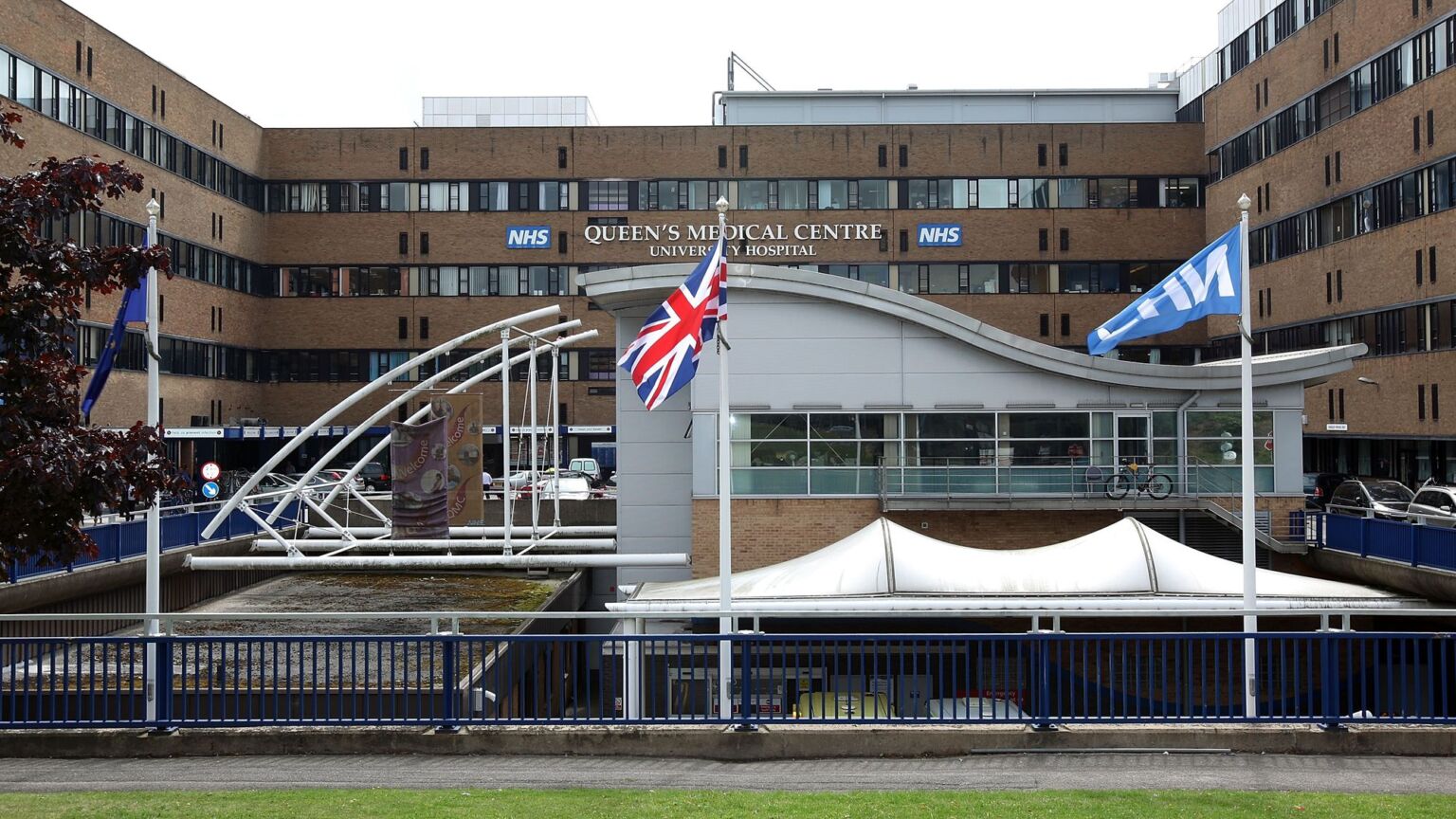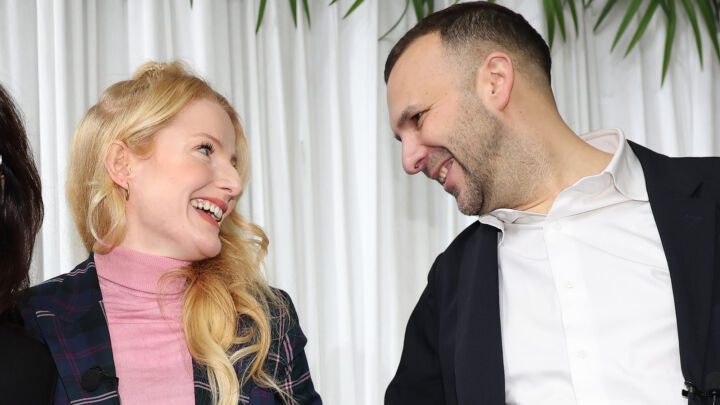Nottingham’s infant-deaths scandal shames the NHS
Our lethally incompetent NHS does not deserve to be sanctified.

Want unlimited, ad-free access? Become a spiked supporter.
Nottinghamshire Police have opened a corporate-manslaughter investigation into Nottingham University Hospitals (NUH) Trust, following the deaths of hundreds of babies at two local hospitals. The number of deaths included in the probe may yet reach the thousands. Police will examine whether the maternity-care programme at the Queen’s Medical Centre and the Nottingham City Hospital had been ‘grossly negligent’, and the extent to which the NUH Trust bears responsibility for these tragic fatalities.
There is much to be disturbed by in this news – not least that it seems to have barely registered as news at all in much of the UK. A tragedy that ought to be on the front pages for days has been met with an oddly muted response.
There might be an explanation for this. Despite the esteem with which ‘our NHS’ is held by Britain’s elites, such catastrophic failures have become horrifically routine on the NHS’s watch. The NUH Trust has said it is ‘deeply sorry’ for the ‘pain and suffering’ caused to parents and families. But there must surely come a time when ‘sorry’ no longer cuts it.
Regardless of the outcome of the police investigation, it is clear that something has gone desperately wrong at Nottingham’s two main hospitals. Indeed, they are already the subject of an inquiry by independent midwife Donna Ockenden, who is investigating 2,500 cases of neonatal deaths, stillbirths and injuries to mothers dating from 2012. Last year, it was confirmed that the NUH had paid out more than £100million in compensation to 134 families, for stillbirths, deaths and brain damage caused between 2006 and 2023. ‘You can be involved in the death of children and babies in Nottingham as long as it happens on the Queen’s Medical Centre campus or the City Hospital campus’, said Jack Hawkins, whose daughter, Harriet, died after multiple failures at Nottingham City Hospital in 2016. ‘If you did it anywhere else, the police would be at your door within minutes.’ Who could disagree with him?
For a public-healthcare system to be responsible for the death and serious injury of hundreds, possibly thousands, of infants is hard to stomach. It seems even more unfathomable in a developed country that spends hundreds of billions of pounds annually on hospitals and staff. Yet, the tragedies in Nottingham’s hospitals are hardly unique.
Take the Shrewsbury and Telford NHS Trust. A 2022 inquiry found it partially responsible for the deaths of over 200 babies and nine mothers, from 2000 to 2019. The report found that some nurses’ fixation with ‘natural births’ – that is, giving birth without pain relief or medical interventions, such as epidurals and C-sections – risked the lives of infants and mothers. In 2015, Morecambe Bay NHS Foundation Trust was found to be partially responsible for the deaths of 12 mothers and babies between 2004 and 2013.
Nor is it just infants and mothers who have been endangered by ‘our NHS’. The case of Valdo Calocane, who murdered three people on a knife rampage in central Nottingham in June 2023, shows that negligence and complacency are rife in mental-health services, too. Calocane was a paranoid schizophrenic, responsibility for whom largely fell on Nottinghamshire NHS Mental Health Trust. The severity of his condition, a report later found, was worsened by a failure to administer anti-psychotic medication. Staff allowed him to refuse the medication because he dislikes needles.
The list of recent scandals is endless. Before it was ordered to close in 2022, the Tavistock gender-identity clinic gave experimental medication to children, which in some cases led to sterilisation, at the behest of trans activists and in defiance of the scientific evidence. The infected-blood scandal resulted in the deaths of 3,000 people who, between 1970 and 1998, were mistakenly injected with viruses such as hepatitis C and HIV. The NHS has built a rap sheet that wouldn’t be tolerated in a third-world country.
Of course, while the likelihood of being caught up in one of these headline-making scandals is slim, the care the NHS routinely provides is not up to snuff either. Last year, Lord Darzi produced a damning report on the state of the NHS in England, noting that roughly 14,000 people die each year because of the dysfunction in accident-and-emergency departments. And this is before we get into the astonishing waiting lists for operations and the inability to see a GP. The NHS may technically provide healthcare that’s free at the point of use, but that’s not much use if you can’t access it at all.
Yet astonishingly, our leaders don’t merely shrug at these failures – they actively venerate the institution responsible. During the Covid pandemic, Britons were instructed to bang pots from front their doors and balconies to celebrate the NHS. In 2023, on the 75th anniversary of the NHS’s founding, it was honored with sermons of gratitude and a prayer from the then health secretary at Westminster Abbey.
The infant deaths in Nottinghamshire are a devastating indictment of the NHS. It exposes a system that is lethally incompetent and yet staggeringly complacent, bolstered by the undue reverence it’s afforded by the powers-that-be. Unless the NHS undergoes significant reform, or is replaced by something better, this won’t be the last terrible tragedy on its watch.
Hugo Timms is an editorial assistant at spiked.
£1 a month for 3 months
You’ve hit your monthly free article limit.
Support spiked and get unlimited access.
Support spiked – £1 a month for 3 months
spiked is funded by readers like you. Only 0.1% of regular readers currently support us. If just 1% did, we could grow our team and step up the fight for free speech and democracy.
Become a spiked supporter and enjoy unlimited, ad-free access, bonus content and exclusive events – while helping to keep independent journalism alive.
———————————————————————————————————————————–
Exclusive January offer: join today for £1 a month for 3 months. Then £5 a month, cancel anytime.
———————————————————————————————————————————–
Monthly support makes the biggest difference. Thank you.










Comments
Want to join the conversation?
Only spiked supporters and patrons, who donate regularly to us, can comment on our articles.